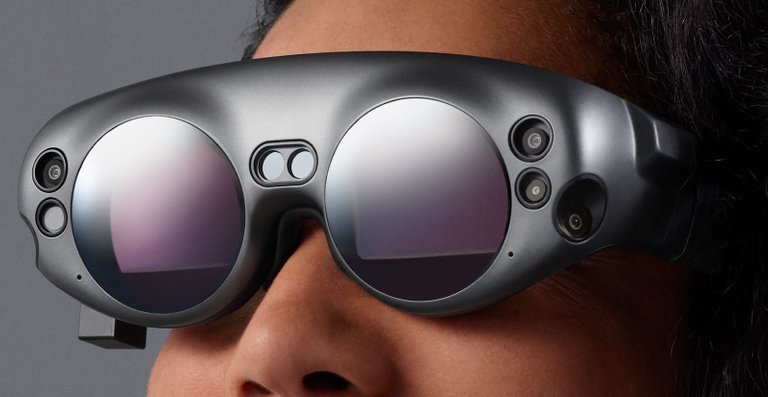I just watched my second Blockchain lecture this month, discussing StormX, where last week the founders of RChain talked about their new kind of math that evolved into a programming language for smart contracts.
As I sit and listen to founders of multi-million dollar ICOs, and reflect on daily life as a VR and AR founder, one thing is painfully clear.
It may be too early for VR, and it is certainly too early for AR.
These technologies stand poised to change the world, change computing, and bring us into the next generation of human-machine interfaces. I don't want to preach too hard, but the tech I work on or near will soon be revolutionizing education, training, data visualization, medical procedures, entertainment, games and more.
And yet every day I ask myself...did I get in too damn early?
Rewind to the end of 2013, a time when the only way to get a VR headset was to have backed the Oculus Rift Kickstarter, no AR headsets were on the market at all, and the tech of today was barely being spun up in R&D labs at Valve, Microsoft, Sony etc.
And yet by luck of having just moved to Seattle, and luck of playing board games with some people who were working at a startup north of Bellevue, I got to participate in a weekend Hackathon making software for a set of AR glasses called CastAR. They had just raised a million dollars of their own on Kickstarter, and I hacked so hard that they gave me my first real job in immersive tech, back in 2014.

It was early. Way way too early, for a company to try and build a top-to-bottom hardware and software stack with their own drivers, their own content marketplace, plug-ins, SDK and all the rest. Their Kickstarter imagined a world where the glasses would ship to the first backers in 2014, and by 2015 everyone would have access to a cheap AR headset with games, OS and all the rest. (I'll write another post about the fate of CastAR)
So CastAR was too early for AR in 2013, but by early 2016, Microsoft released the first HoloLens for $3000.
But even that was too early. With bleeding edge tracking and rendering technology on an embedded processor, Microsoft also went so far as to make an entire version of Windows to support it, and ported most of their apps over as well. Don't get me wrong, the HoloLens is amazing, and two years later is still seems futuristic, but it is 2018, and even now it is still too freaking early.
Next in line is Magic Leap, the insanely well funded startup making glasses that nobody is allowed to talk about. They seem to have several years more runway before they have to launch a product...which is fine, because it is too early.
So when will it not be too early? Sadly, when Apple finally joins in.
Yeah, it's sad but true. My friends often joke that in 2020, Apple will take over the world by "inventing" AR. As someone who was working on it in 2014, I laugh along, but the barrier between "too early," and "perfectly timed" is a billion dollar question. It's not just when the technology works, and there is some good content, and there is minimal friction. It's when all those things and more align perfectly, and the average person simply has to have it.
VR is still in a dangerous place because Mark Zuckerberg bought a VR startup called Oculus for $3 billion dollars in 2014. The headsets launched two years later with the bare minimum of content, and the several hundred thousand early adopters love the crap out of them...but the other 7 billion people on the planet don't care. VR is still waiting on the perfect headset and the perfect content to make it the "obviously I need this," product, and I have my fingers crossed that 2018 will see more people start to buy them.
But as someone who has founded two VR companies, and has been asked by investors dozens of times "is this tech just too early?" I am finally relenting and accepting that yeah, maybe I should have been mining bitcoin this whole time.
To bookend my little diatribe here, I am not enough of an expert to know if Blockchain is too early. Those who have made millions from almost nothing are surely feeling awesome, but hearing about a company with like 6 employees that pulled in $32 million from an ICO gives me a lot of reason to question things. To their credit, folks who "got in too early" on bitcoin are rich as sin, while those who "got out too early" are angry and surly and probably trying to invent a time machine.
I picked my poison, and as a result am one of the leading experts in a field where the experts are all either flat broke, or work at Facebook. The folks who chose crypto certainly make me look like an idiot by comparison, but maybe this AR VR stuff will pay off some day!

